It’s Time To End Iowa And New Hampshire’s First In The Nation Status
RNC Chairman Reince Priebus suggested that Iowa and New Hampshire shouldn't get used to their place at the top of the primary calendar. He's right, but fixing the crazy system that put them there isn't going to be easy.
Republican National Committee Chairman Reince Preibus is suggesting that the RNC may look into changing how primaries are scheduled so that states like Iowa and New Hampshire don’t necessarily go first:
Reince Priebus and the Republican National Committee have taken drastic steps to restructure the GOP’s presidential primary process, including cutting the number of debates, compressing the nominating schedule, and introducing harsh penalties for candidates and states that violate party rules.
But with the RNC this week finalizing its rules and regulations for next year’s primary, Priebus said in an interview that there is unfinished business he’d hoped to handle ahead of 2016 and expects the party to address before the next cycle: shaking up the early states on the primary calendar.
“It’s a hot topic. These early states are very used to fighting this out every four years. It’s just something I think we ought to look at as a party,” Priebus said. “If you look at my history, I’ve been very supportive of the early states as general counsel and as chairman. But I don’t think anyone should get too comfortable.”
Such statements are known to sound alarms in Iowa and New Hampshire, the first two states on the nominating schedule, where party leaders guard their special status with a righteous zeal. Iowans, in particular, feel perpetually targeted by national Republicans and worry that their leadoff status could be in jeopardy after 2016. Many party officials there feared the collapse of this year’s straw poll could foreshadow the demise of their caucuses.
If anything, the RNC offered protection to those early states this cycle like never before, approving severe penalties for any state that leapfrogged them on the calendar. But Priebus said every aspect of his party’s primary system will be reevaluated after this upcoming election, and said no special treatment will be given to the traditional early states.
“I don’t think there should ever be any sacred cows as to the primary process or the order,” he said.
Priebus raised the issue unsolicited when asked what, if anything, he’d failed to fix ahead of the 2016 primary season. The chairman said he understands the difficulty of displacing any of the four “carve-out” states at the front of the calendar—Iowa, New Hampshire, South Carolina, and Nevada—but said the party would benefit from bringing new ideas and fresh blood into the process.
Discussions about changing the order have intensified inside the party, Priebus said, and he expects the issue to be “front and center” when the RNC’s rules committee meets at July’s national convention in Cleveland.
It’s too late to change the rules for 2016, and in fact, the RNC will release a finalized itinerary this week for next year’s primary contests. But party officials are continually debating the contours of a new system.
Priebus said the changes made to next year’s primary process are “just the beginning,” and said even though he won’t serve a fourth term as RNC chairman—meaning he won’t be in a position to implement a system after 2016—he’s got some ideas of what it could look like.
“One of the things I would have been interested in doing is sort of like a rotating primary process, where you would divide the country into five quadrants and have a primary about once every two weeks. And then you could have about a 10-week primary process,” Priebus said. “I’ve always been intrigued by that idea.”
Several other plans have been floated in recent years, Priebus said, including a “random lottery” that would assign each of the 50 states with a number 1 through 5 and result in five primary dates with 10 states voting on each.
Taking aim at the prominence that Iowa and New Hampshire, and to a lesser extent South Carolina and Nevada, have in the Presidential nomination process in both parties has become something of a quadrennial tradition. Every four years or so, political analysts and Political Science Professors around the country will point out the numerous problems that are created by the outsized influence that these candidates have in the nomination process. It is pointed out, for example, that both Iowa and New Hampshire are woefully unrepresentative of the nation as a whole in a number of ways, most particular when it comes to racial and ethnic breakdown. South Carolina, meanwhile, has a closed primary that means that the outcome is typically biased toward the most conservative candidate in the race regardless of whether or not they are a viable candidate for the General Election. Nevada is also not entirely representative of the nation as a whole and the fact that it uses a caucus rather than a primary means that it tends to churn out results out of step with the rest of the nation.
Taking all of that into account, the history of the impact that these early states have had on the primary process in both parties certainly raises eyebrows. Inevitably, when candidates fail to perform up to expectations in these states, they are almost immediately ruled out of contention for their party’s nomination and, most of the time, end up withdrawing shortly after the results are in. We saw it happen in 2012 on the Republican side with Michele Bachmann, Jon Huntsman, and Rick Perry, and in 2008 on the Democratic side in 2008 when the results in Iowa led to the end of Joe Biden’s campaign and political pundits across the nation questioning the viability of Hillary Clinton’s campaign based on her third place showing behind John Edwards and Barack Obama. Additionally, there are plenty of examples from previous elections of results from these states having a profound impact on the course of a race. Most famously, of course, President Lyndon Johnson won the 1968 Democratic Primary in New Hampshire, but ended up deciding not to run for re-election because of his narrow margin of victory over Minnesota Senator Eugene McCarthy. President George H.W. Bush, meanwhile, arguably saw his campaign seriously weakened when Pat Buchanan garnered a stronger than expected 35% of the vote in the 1992 Republican New Hampshire Primary. The idea that states that are so unrepresentative of the nation as a whole can have this kind of influence on the selection of a President seems strange to say the very least, and yet that’s how we’ve allowed the system to operate for more than four decades now.
Ideally, I like the idea that Priebus hinted on in the interview above. Instead of having the primary season start in wholly unrepresentative states like Iowa and New Hampshire, and in order to avoid the issue of even a single state having as much influence as they do now, we should switch to a system of regional primaries. Under this kind of system, the nation would be divided into four or five regions, with each region made up of a mix of large and small states so as to counteract the chance that population alone would decide the nomination. Each region would have their primary on a specific day starting in ,say, February with each of the regional primaries spaced four to six weeks apart stretching from February to June. The question of which region goes first could be decided by lottery, or it could be done on a rotating basis, and the system should be left open to reorganizing the regions as deemed necessary. Additionally, I would eliminate all caucuses or other methods of choosing a Presidential nominee other than primaries for the reasons stated here. The advantage of this type of primary, I think, would be that we’d get a far more representative picture of the electorate of both parties, and this would arguably lead to better nominees. I’m also sympathetic to the idea of eliminating closed primaries and allowing people to vote in a primary regardless of their previous voting history, and I’d be open to considering other alternatives for reorganizing a primary system that seems to clearly be broken.
As ideal as the regional primary idea, or any other proposed reforms to the Presidential primary process might be, though, it’s unlikely that it will implemented in the near future, and it’s similarly unlikely that Priebus or anyone else at the RNC would be successful in challenging the primacy of the early primary states. Notwithstanding Priebus’s criticisms of the current process, which are well-placed, the national party committees actually have very little control over primary scheduling. The most that they can do is attempt to strip states that don’t adhere to their schedule of all or a portion of their delegates, but as we saw in both 2008 and 2012 that sanction is rarely enforced and often reversed. Ultimately, the control over the calendar lies in the state legislatures and in the state party system. As we saw in 2008, if other states try to schedule their primary before Iowa and New Hampshire, those states simply respond by moving up their date of the primary or caucus. In 2008 and 2012, that resulted in the absurd spectacle of the Iowa Caucuses taking places only days after New Year’s Day, and there had been threats in both years that either state would move their proceedings to December of the preceding year if any state tried to move in on their exclusive role as the early primary states. One suspects the same thing would happen in the future. As for the regional primary idea, it would require the kind of cooperation among multiple state legislatures and state party committees that quite honestly seems rather impossible in the real world.
Chairman Priebus is right to say that the primacy of the early primary states is not something that should be taken for granted, and it’s long past time that we had a real discussion about fixing a primary system that has become absurd in many respects. Getting from that rhetoric to the reality of actually doing something isn’t going to be easy, though. If the Chairman does give it a try, I’ll be interested to see what he comes up with and I’ll wish him luck, but I’m not going to be optimistic about its chances for success.
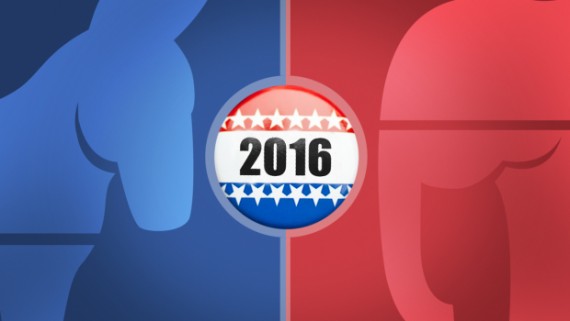

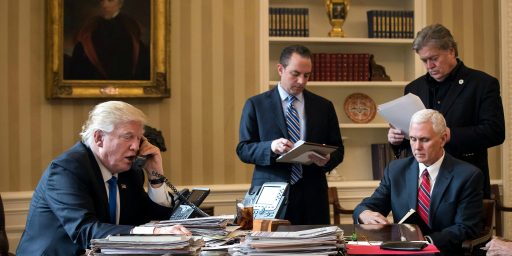

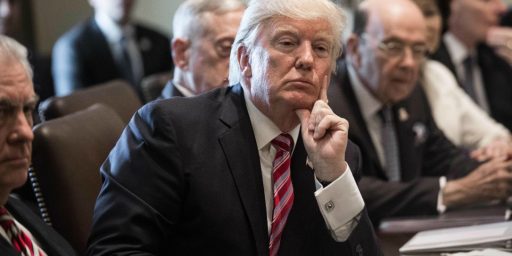
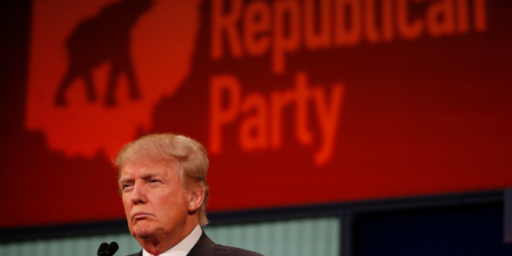
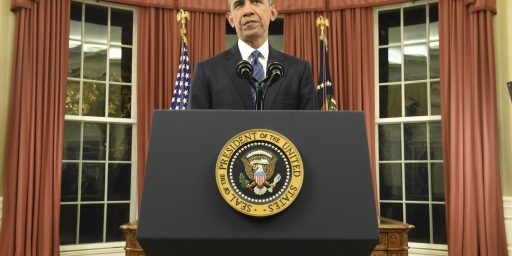
To quote the back cover of one of the Human-Kzin War books by Larry Niven and others: “Good luck, monkey-boys!”
Just don’t make Illinois a contested state in either party’s primaries. I look at my fellow voters in Iowa, New Hampshire, etc. as taking one for the team so I don’t have to watch all those commercials.
I don´t know. There was two Republican debates, and neither of them were held in Iowa or New Hampshire. Trump held his biggest rally in Alabama, Sander had huge rallies in California. In today´s media environment Iowa and New Hampshire are losing their clout, even if they vote first.
It is pointed out, for example, that both Iowa and New Hampshire are woefully unrepresentative of the nation as a whole in a number of ways, most particular when it comes to racial and ethnic breakdown.
As an Iowan, even I can’t defend our always going first. However…
1. I don’t think “diversity” should be the issue.
2. The problem with regional primaries is that poorly-funded candidates can’t even try and compete. Having to have full-scale political organizations up and running in 10+ states six months to a year or more before the primary will exclude even more possible candidates than the current system. And if California, Texas or New York is one of the states in the primary?
Mike
My only complaint about the current system is that it’s always the same two states at the top of the itinerary.
If nothing else, the caucus should be eliminated from the Presidential nomination process.
My personal choice for reform is for the top states (e.g. Texas, Califormia, NY, Florida, maybe Illinois and Ohio) schedule their primaries late and last. The idea would be to group enough delegates together so that no one can win until the last day of primary season.
I don’t especially have a problem with caucuses. We’ve internalized the view that nominee-selection should be as democratic as possible, but I don’t entirely agree with the premises. If anything, recent cycles in the US and abroad have lead me to be sympathetic to the notion that primaries themselves might have been a mistake.
(A correction above… I said “my only complaint” when that’s not quite true. The frontloading of the primaries is another complaint. Probably a larger one, in fact.)
New Hampshire’s state law says that it goes first, so going to a regional primary system would mean that NH would bump their primary before whenever that is. I’m sympathetic to the arguments, truly. But I don’t think this state would give up its place in the calendar willingly or easily. In addition to the reputation and state pride, I have a feeling there’s more than a little bit of economic impact that would be affected.
I also tend to think that Reince should be focusing on the rather unruly state of the GOP right now.
@Jen: Regarding your last point, it’s not clear to me that the staggered primary is really the source of the current mayhem. It seems like an effort on the part of party leadership to find some external blame for a situation mostly of internal creation and luck.
Regarding how to knock NH off its perch, that’s mostly a matter of letting New Hampshire have its primaries but stripping them of their consequence. “Sure, you can have your first-in-the-country primary… you just won’t get to seat any delegates.”
The only trick there is given Iowa and New Hampshire are both swing-ish states, it would be easier to stick to those particular guns if both parties go into it together. I don’t think either party benefits from January primaries, though, so it’s not completely implausible. Though if you’re going to do that, this isn’t the way to bring it up.
Which brings me back to the belief that this is mostly blame-shifting. And it’s really a bad idea to try to come up with a permanent solution to what is likely a temporary problem. Arguably, it was the party’s overreaction to 2012 – limiting and delaying the debates – that helped give rise to Trump this time by giving The Donald time to build momentum before the debates got started.
@Trumwill: Actually, that’s an interesting idea. Have the states hold a lottery each Presidential election to figure out who goes first.
I think NH enjoys the attention, especially the amusement they get from watching politicians try to pretend they know how to a) sail a boat b) deer hunt c) love maple syrup.
Quick, Senor Doug Quixote, I see a windmill!
@Trumwill:
Blame-shifting is most of it. As if it’s New Hampshire’s fault that any billionaire can now run his own candidate. It’s Iowa’s fault that idiot Republican voters choose idiot candidates. Riiiight.
The rest of it is the Money! Republicans trying to get a leash on the Jesus wing of the party. Larger primaries = More money = more influence for the billionaires.
@grumpy realist:
I think you’ve sussed it — Donald Trump thinks of himself as Speaker to Food.
@Trumwill:
I like primaries. I think that they make parties more responsive to the will of the electorate instead of party leaders controlling everything. It´s one of the things that I envy in the American system. If the matter are vanity candidates, they are very common in country with runoff.
@Trumwill: I like Primaries. That´s something that I envy in the American Political system. They make parties more responsive to the will of voters and to their base.
@Trumwill: I like Primaries. That´s something that I envy in the American Political system. They make parties more responsive to the will of voters and to their base.
@MBunge:
Why is diversity in scare quotes?
@Joe: God, 2008 was so annoying here. First primary to have an impact to reach North Carolina so excitement, sure, but the constant effin’ ads…
@MBunge: To your second point, we could think of this less as reducing the advantages of poorly-funded candidates and more as an assertion of party prominence in candidate selection. Parties have ceded a lot of power in candidate selection to primary voters in the last few decades; it’s probably time for that pendulum to swing back some.
If we’re going to go all green-field here, the best idea I’ve heard is to simply choose a day and have a nationwide primary all on the same day. It’s a better test of the organizing skills for each candidate giving us an idea of whether they have what it takes to manage the vast executive branch while negotiating with the other two.
As long as I’m dreaming, I’d also like to see more widespread adoption of a Top 2 primary system like we have in some of the more progressive states. When the top 2 candidates have to square off in the general election, things get a lot more interesting and become much more representative of the will of the people. There’s also the added benefit of weakening political parties.
This idea also opens up the possibility that each state could have a different slate of candidates in the general election – putting pressure on Congress to begin the process of eliminating the Electoral College system and perhaps even setting us up for coalition governments who must compromise to accomplish anything.
A guy can dream……
@Tony W: I’m against a national primary day. I think it’s good to have a system where candidates can build viability. It seems as likely as not that a national primary in 2008 would have resulted in either an outright HRC victory or a runoff between HRC and John Edwards. Also, I think winning a national primary would mostly be a product of fundraising acumen.
(I sort of think the “regional primaries” is a bit too far in the “national primary” direction, though not as far. As mentioned above, my main problem with the status quo is the hard-coding of the early states, and the consistent creep of states to earlier and earlier in the year.)
@Tillman:
“First primary to have an impact to reach North Carolina so excitement, sure, but the constant effin’ ads…”
Trust me, they don’t get better with longer exposure. In the Philly suburbs, we are subjected to them every time. And for the Senate races. And usually 3-5 House races which are close enough for televised ads. And so on. This year, I have been receiving robo-calls for the County Sheriff race.
Why else would Iowa and New Hampshire exist???
New Hampshire…the state that let it’s state symbol fall down.
Sheeeeesh…..
@michael reynolds:
To be fair, both Iowans and Granite Staters love them some mavericks, which does tend to bias (somewhat) the early perception of candidate viability. This is largely the fault of the media, who are obsessed with ‘momentum’ (and, these days, what is ‘trending’). It’s hard to stick it out as a candidate running short of funds if the first real primaries you get into say “We are not amused”.
Looks like Megan’s on the warpath for Carly again…..
With the typical Megan brain-dead argument. Hey, we don’t know whether HP went down the tubes because of Carly or because it would have gone down the tubes anyway! Therefore you can’t blame Carly!
A classic case of “heads, I win, tails, you lose.”
[Facepalm]
Elizabeth Warren has claimed her first scalp over at the Brookings Institute.
I don’t think she’s going to run for POTUS for a while. She’s having more fun where she is rooting out corruption and conflicts-of-interest.
@Trumwill: Your argument about candidates building viability would resonate for me more if the pool of people running was more, well… viable.
@grumpy realist:
Interesting McMegan argument for once. And yet, she seems oblivious to her own words. The most critical paragraph seemed to me this one:
“We’re in the midst of a great outsider boom, from Bernie Sanders to Donald Trump, to populist parties in Europe and the election of a far-left Labour backbencher as leader of the party in the U.K. Much of the appeal seems to be that we need someone to shake things up who’s not beholden to the same tired, focus-grouped, compromised, corrupt political culture. On the left, this appetite seeks out radical firebrands who promise they won’t sell out to the neoliberal consensus; on the right, it looks to business leaders (or maybe surgeons), who have proved they are competent in a competitive domain utterly unlike the political system.”
Certainly under this analysis whether Fiorina was competent as a CEO matters a lot. And a response of “she wasn’t an obvious success, but maybe it wasn’t her fault” (which I think is the most charitable possible reading of her time at HP, especially with no one beating the doors down to give her a second chance) should be nowhere near good enough. And yet being a CEO is the only thing on her resume which even marginally qualifies her for the Presidency.
@Moosebreath:
Can anyone think of another example of the under-65 not-even-indicted CEO of a company as large as HP not immediately finding another comparable gig? (Fiorina was in her early 50’s when forced out at HP.)
I mean, even Hank Greenberg, who was 80 years old when AIG went down, kept some of his other positions and got new ones afterward…
Some of the problem for Carly may be that she is a woman in a “male” field (as though there are “female” fields). I don’t know how much her gender impacts her options and hireability. I’m reminded of a quip from the old days of early feminism:
Carly doesn’t resemble that remark in any measurable way.
@Moosebreath:
Seriously? Bernie has been a Senator for 25 years. How does he qualify as an outsider? He’s more Maverick-y than McCain ever pretended to be…but he’s no outsider.
Obviously that’s her argument, not yours…just sayin’
A national primary day would pretty much mean campaign money would focus on the large states.
One advantage to small states going first is they are easy to campaign in and venues are cheap. Before living in NH I lived in various midsize to large states-I personally never met or had any kind of forum with a presidential candidate. Now I have run into candidates at restaurants, small shops and town halls. The NH state law aside I think carefully selected groups of states would make the most sense and the reality is NH and IOwa rarely have a ton Of influence on the leaders but often weed out the bottom feeders. Small state primaries/caucuses being first allow poor candidates to make personal connections and advertise in more affordable ways. If a candidate had to buy ads in California in January they might run out of money quicker.
I think there’s a and a rage to having a couple of small states get the focus early in the race but I like the idea of rotating regions so no state ends up with a meaningless primary in May or June.
Count me in the regional primary camp. I think most of the objections to regional primaries could be met if we make the “regions” small -say 3/4 states on average. New England- although it’s 6 states- would be one example of a rather small, reasonably compact region – one with considerable diversity too, thanks to Massachusetts and Connecticut. We could have a “North Atlantic ” region of New York, New Jersey, and Pennslyvania and a “Chesapeake ” region of Delaware ,Maryland, DC, and Virginia, etc. We might have as many as 18 primaries but then there are 18 weeks from the beginning of February to mid June. Who goes first would be a matter of rotation.
Of course, there would be considerable jockeying about which state goes in which region, and not everyone would be happy. But it would be a vastly fairer and more rational system than the current monstrosity.
@LC: Why is diversity in scare quotes?
Because you can argue against Iowa and New Hamshire on a lot of valid grounds but to denigrate them for being too white, which is pretty undeniably an element of this, would be nigh-universally recognized as bigoted if white were replaced with any other designation.
Mike
@MBunge:
I disagree. “Not representative” combined with “treated as informative” is always a problem, regardless of sign. If DC had a primary, and it came first, and the media treated it as revealing important information about how various candidates were doing, that would be equally problematic.
@DrDaveT: “Not representative”
California is “not representative.” New York in “not representative.” Georgia is “not representative.” Any regional primary would also be “not representative.”
Mike
@MBunge:
New York and California are more demographically representative of the USA than are either Iowa or New Hampshire. As DrDave alluded to above, New Hampshire and Iowa are about as demographically representative of the USA as Washington DC.